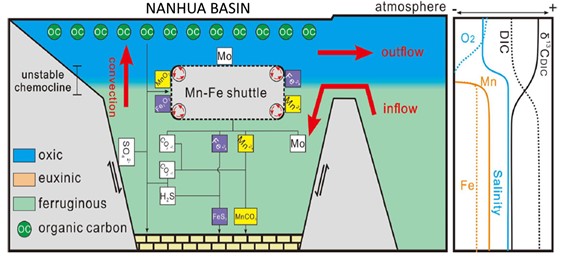 HKU Department of Earth Science
HKU Department of Earth Science
Seminar

Getting salty: Salinity analysis in paleoenvironmental studies
-
Date
May 25,2023
-
Time
3:00PM
-
Venue
JL104
-
Speaker
Prof. Thomas Algeo University of Cincinnati Visiting Professor, China University of Geosciences, Wuhan
Salinity has been one of the most challenging features of paleodepositional systems to reconstruct. Recent work by Prof. Algeo and his colleagues has demonstrated the robustness of multiple elemental proxies for estimation of watermass salinity in ancient shale/mudstone formations. This talk will review recent work in reconstruction of salinity in epicratonic and continental-margin aqueous systems from Mesozoic to Paleoproterozoic in age, with examples drawn from many regions including the Nanhua Basin of South China. Some of the important findings of this work are that (1) around half of the dozens of epicratonic shale formations examined to date were deposited under brackish or (more rarely) freshwater conditions, rather than fully marine conditions as previously assumed; (2) salinity variation generally correlates strongly with variation in redox and productivity conditions; and (3) the expression in cratonic systems of many geologic events (e.g., the Toarcian OAE) was influenced by salinity fluctuations.
Biography: Thomas Algeo completed his Ph.D. at the University of Michigan in 1989 and worked in the oil patch for several years before joining the faculty of the University of Cincinnati in 1991. He has specialized in the development of elemental proxies for paleoenvironmental analysis, laying the foundation for the modern approach to reconstruction of redox, salinity, and productivity conditions in paleoenvironmental systems. He has studied all of the Big Five mass extinctions and is the author of a leading theory for the Late Devonian extinctions, linking them to the evolution of vascular land plants.
Additional information: Dr. Su-Chin Chang, suchin@hku.hk
